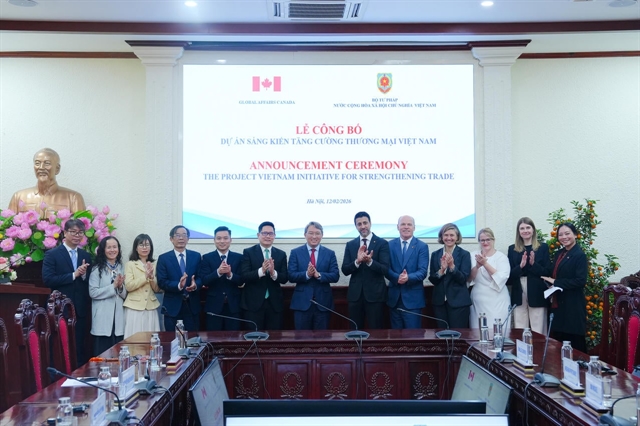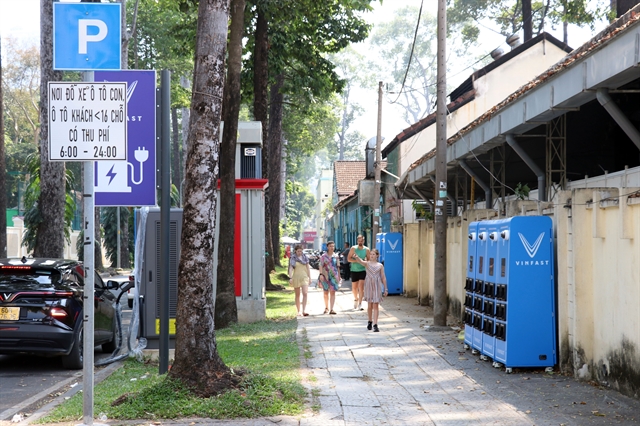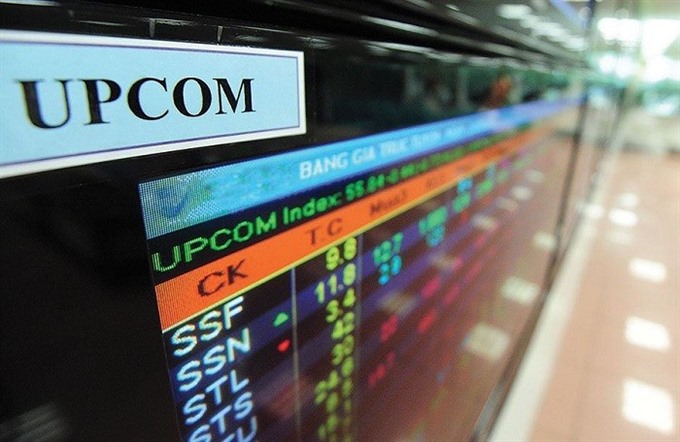 Economy
Economy

A total 797 companies had traded shares on the Unlisted Public Company Market (UPCoM) as of Monday, exceeding the total number of listed companies on the Ho Chi Minh and Hà Nội stock exchanges and putting pressure on market management and supervision.
 |
| In October alone, 17 companies debuted on UPCoM with more than 31 billion shares registered for trade.— Photo vietnamfinance.vn |
HÀ NỘI — A total 797 companies had traded shares on the Unlisted Public Company Market (UPCoM) as of Monday, exceeding the total number of listed companies on the Ho Chi Minh and Hà Nội stock exchanges and putting pressure on market management and supervision.
By the same day, the total number of listed companies on the two local exchanges was 744, including 370 companies listed on the southern bourse and 374 on the northern one.
In October alone, 17 companies debuted on UPCoM with more than 31 billion shares registered for trade.
Several large-cap companies, including State-owned enterprises (SOEs) that had already completed their equitisation process partly or wholly, also moved to UPCoM to quickly make their shares tradable, thus benefiting shareholders.
With more large-cap firms trading on UPCoM, the unlisted market has moved similarly to the two stock exchange indices.
The UPCoM Index on Wednesday ended flat at 52.06 points and has lost nearly 4 per cent since the beginning of October.
In the same period, the benchmark VN Index and the HNX Index respectively declined by nearly 9.3 per cent and 10.6 per cent.
Average trading volume in each session since October to Wednesday was more than 17 million shares, worth nearly VNĐ280 billion (US$12.4 million). Foreign investors net sold nearly VNĐ51 billion during the period.
The increase of the number of companies on UPCoM and unlisted market trading liquidity has raised concerns among investors about market regulator’s ability to manage the quality of market trading.
The recent trial of fraudulent trade and portfolio falsification of the Central Mining and Mineral Import Export JSC (MTM), which caused total losses of VNĐ56 billion during 2013-16 for the unlisted market, was the result of the market mismanagement and a lack of control over market trading portfolios and business transparency.
According to the Hà Nội Stock Exchange (HNX), the northern market regulator has regularly reviewed and improved its regulations to enhance market management and assure businesses and investors.
To improve transparency, HNX has recommended half of UPCoM-traded companies should use the corporate information management system (CIMS) to publish information accurately and timely.
The internet-based system would help UPCoM companies release online statements whenever they have to, reduce procedures for both market regulator and companies and help firms make less mistakes with information disclosure, HNX said.
In May 2018, the HNX started classifying UPCoM companies by market capitalisation, a move expected to improve the transparency of the companies and help investors track information more easily.
After the case of MTM, which was revealed in June 2016, the HNX on June 17, 2016 issued the UPCoM Warning List that now contains 109 companies under scrutiny for not performing their transparency duties and threatening the benefits of investors.
Equitised SOEs not public
According to the Ministry of Finance, 667 SOEs have not gone public on the stock market though they have been equitised. That number includes 295 companies under the management of ministries and sectors and 372 under local authorities’ management.
In recent years, SOE equitisation has introduced high-quality companies to the stock market and created a foundation for the Vietnamese securities market, the ministry said.
Those SOEs lead their sectors by market capitalisation, information transparency, corporate governance and business performance, the ministry said.
Most post-equitisation SOEs which have traded shares have gained advantages over other firms in financial status, infrastructure, human resources and Government incentives.
Therefore, most of those SOEs perform better and extract annual earnings for capital hikes or meet investors’ requirements to issue additional shares and bonds to raise capital.
However, the finance ministry said the late listing/trading of some firms’ shares has reduced stock market transparency in the eyes of investors, slowed the reform of SOEs’ corporate governance and hindered the public from managing the firms’ work performance.
Đặng Quyết Tiến, general director of the finance ministry’s corporate finance department, told a meeting on Monday the ministry had assigned the State Securities Commission (SSC) to penalise any SOEs which delay trading shares.
The SSC revealed that 152 SOEs had qualified for share listing and trading in their post-equitisation stage, he said.
To push equitised SOEs to move to the stock market, the finance ministry proposed a solution to force those firms to trade shares, pay back the amount of State capital received from share sales to the State budget by December 31, 2018 and report to the Prime Minister about any delays.
According to the finance ministry, 747 equitised SOEs did not trade shares on the stock market as of the end of 2017. Up to now, 31 per cent of them or 231 SOEs have registered with the SSC to enter the stock market, including 152 that have listed on the two exchanges. — VNS